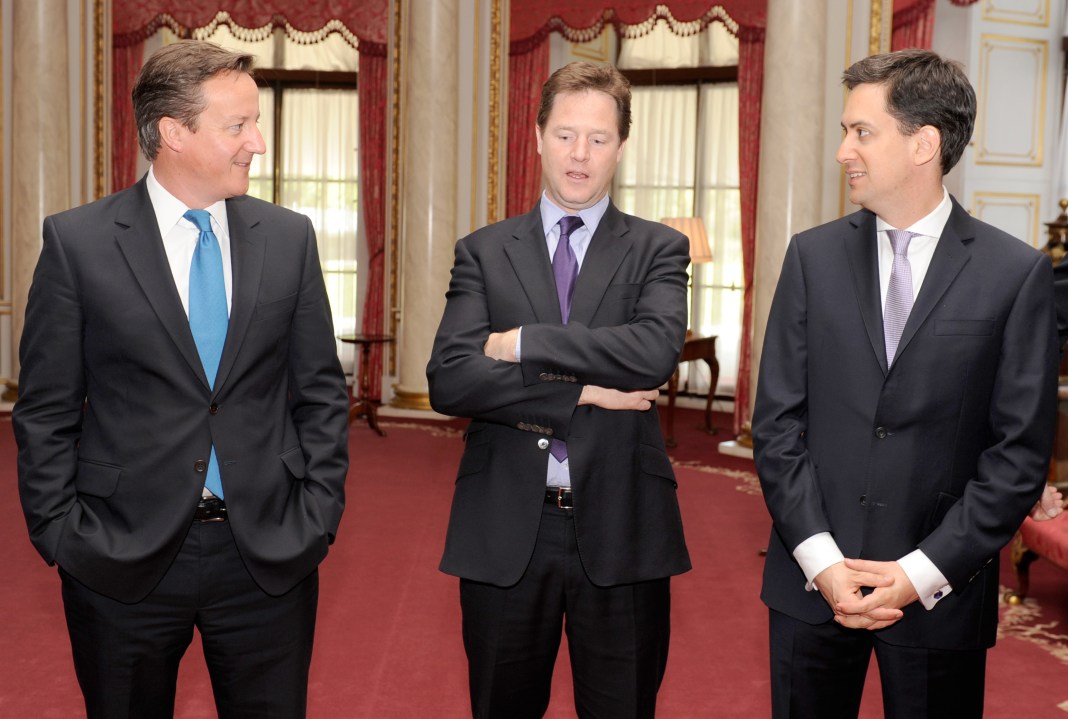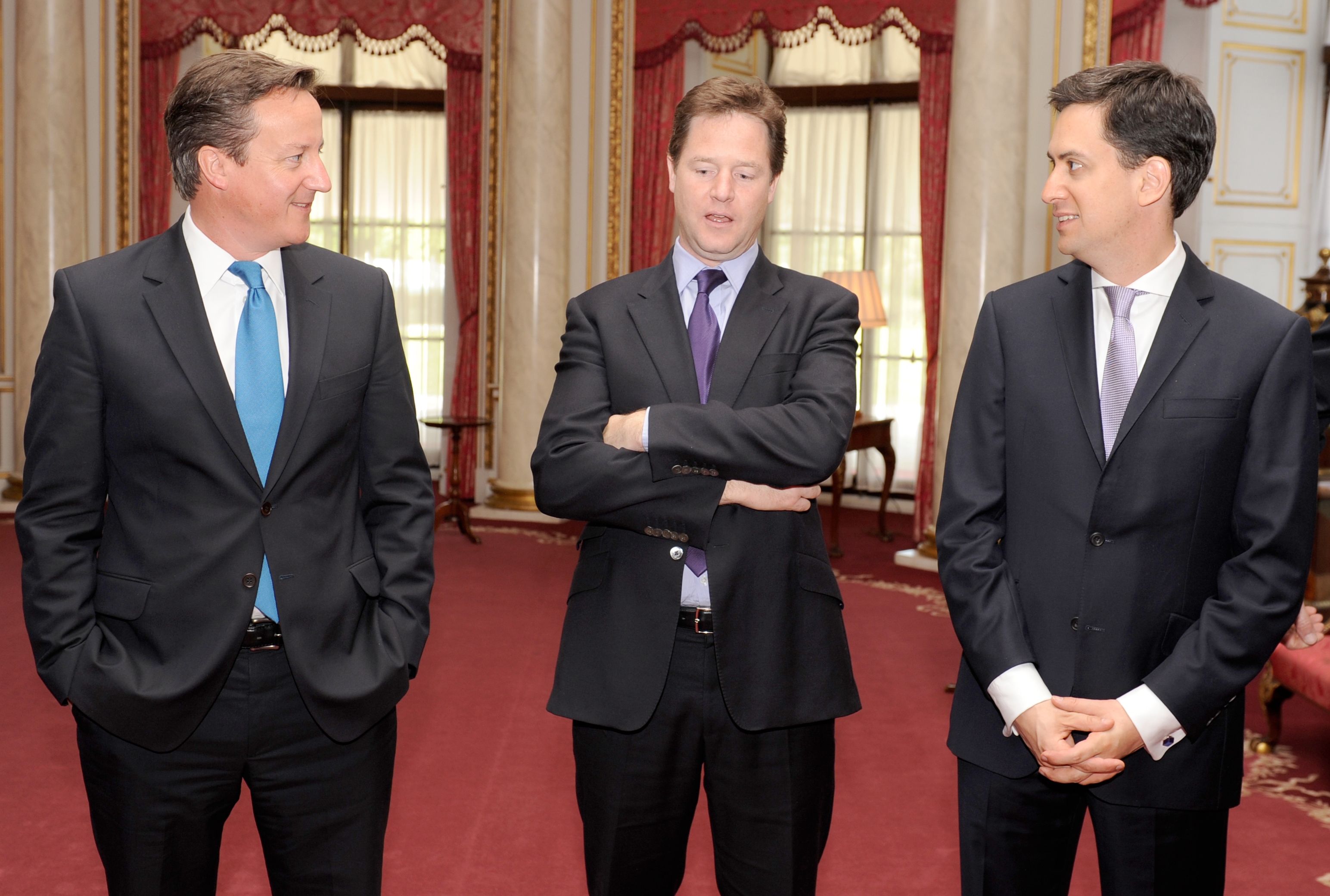For more than year Westminster has assumed that David Cameron would have a Tory crisis to deal with after the European Elections. Whenever anyone remarked on the Tories unifying, someone would say ‘well, wait until after the Euros’. The conventional wisdom was that the Tories coming third would lead to a slew of senior Tories pushing for more robust policies on immigration and Europe and more and more Tory MPs calling for a pact with Ukip. But this morning, Cameron has fewer problems than either Ed Miliband or Nick Clegg.
The fact that the Tory party has responded so calmly to coming third in a nationwide election for the first time in its history is partly a triumph of expectation management. But the Tory calm is also because this isn’t actually that bad a result for them. They are only a point and a half behind Labour and the spread between first and third is only 4 points. For a governing party a year out from a general election, this isn’t that bad a result. It suggests that the Tories are in with a fighting chance of being the largest party at the next general election. If the Tories can hold Newark relatively comfortably in the by-election there next Thursday, the Tory party will go into the summer in good spirits.
For Labour, this result is a disappointment. Being beaten by Ukip is one thing, but only just edging the Tories is another. This result indicates that there is no tidal wave of enthusiasm for Labour. Instead, the party is going to have to try and eke out an election win.
One of the things that should worry Labour most is how little cut through its policy prospectus had in this campaign. Even big pledges, such as it is promise that everyone will be able to see a GP within 48 hours, didn’t get traction. As I said in the Mail on Sunday, one shadow Cabinet member’s explanation for this is that ‘no one believes it’. He fears that until Labour gets some credibility on spending and the public finances, nothing it says will be taken seriously.
I expect that we’ll also see Labour MPs fretting publicly about how disconnected the leadership of the party has come from Labour’s base of support in the country. There is already grumbling that Oxford PPE graduates who live in large houses in London don’t understand the threat that Ukip poses to Labour’s working class vote.
Nick Clegg will be hurt by last night’s result. He is the most emotionally pro-European politician at the top of British politics and he’ll hate the sight of Ukip winning a nationwide vote. He’ll also know that it was his debates with Nigel Farage that gave Ukip momentum at the start of this campaign.
This result will also add to the debate over his leadership: losing 10 out of 11 MEPs and coming behind the Greens was an even worse result than the Liberal Democrats were braced for. There’ll be those who question the Lib Dem strategy in this campaign from the decision to challenge Farage to debate to positioning the party as the UK’s pro-European voice. There’ll also be mutterings that the problem wasn’t the message but the messenger, that Clegg is simply not believed by large chunks of the electorate any more. But, as I said yesterday, I expect that Clegg will hang on because there is no chance of a smooth transition and senior Liberal Democrats are not prepared to out the party through a bloody and divisive leadership without any guarantee of success.








Comments